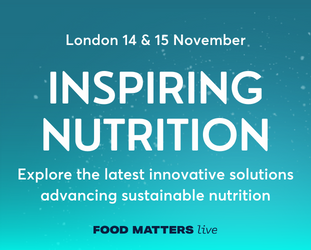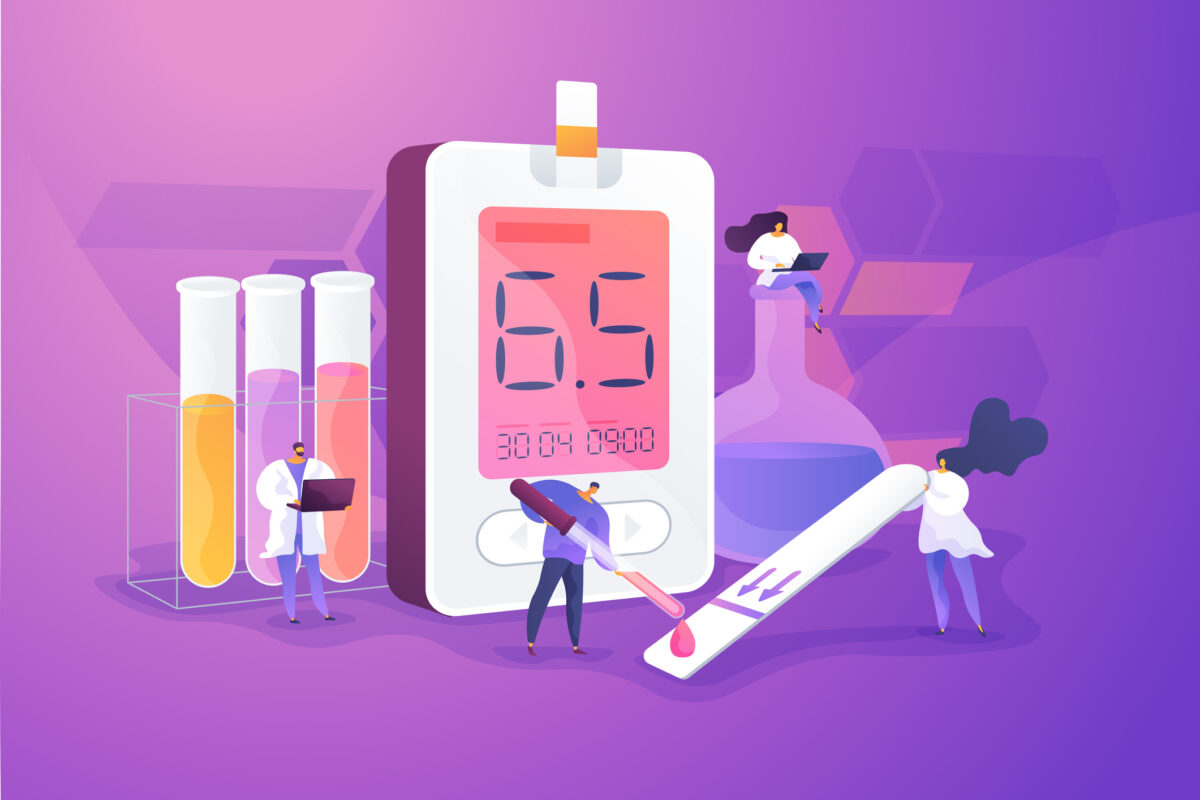The truth about sweeteners: the pros and cons of sugar substitutes
The history of artificial sweeteners is widely considered to have begun with a pair of unwashed hands. Said hands belonged to Russian chemist and then-postdoctoral student Constantin Fahlberg, who in 1878 was researching sugar impurities at Johns Hopkins University in Maryland, US.
According to the story, working late one night in June caused Fahlberg to have to rush home to his supper. In his haste, he neglected to wash his hands, which that night had been focussed on products derived from coal tar. He didn’t realise his mistake until sitting down to eat his meal, where he found his bread, drink and even napkin all tasted intensely sweet. Supposedly, upon realising his unwashed hands were to blame, he ran back to the lab.
The resulting studies produced what Fahlberg first referred to as “coal tar sugar”, and later would name saccharin. In the many decades since Constantin Fahlberg’s discovery of the sweetener, human beings have become no less interested in how they can emulate sweetness without sugar. Sweetness is, after all, one of the five dominant tastes that our tastebuds detect and a huge number of us consider ourselves to have a ‘sweet tooth’.
Proving that humans could assuage their sweet cravings without indulging in sugar, saccharin opened the floodgates to many other sweeteners. Cyclamate was introduced to the American populous in the 1950s, and aspartame and sucralose followed in 1965 and 1976 respectively.
The science behind artificiality
Plenty of the sugars we consume are naturally occurring – for example, the fructose found in fruit and the glucose found in whole grains and legumes. The one we are perhaps most familiar with is sucrose, which is another name for table sugar.
Artificial sweeteners, like their name suggests, are not naturally occurring chemical compounds. They are used in place of sugar as they don’t cause dental issues, weight gain and blood sugar spikes. In fact, sweeteners are widely used by those suffering from diabetes.
Certain sweeteners are harder to define as strictly artificial or natural. Erythritol, for example, is a sugar alcohol which is naturally occurring in some plants. However, many of the erythritol-based substitutes found on the market are synthetic because the amount actually found in nature is miniscule. This is similarly the case for other sugar alcohols – also known as polyols – like maltitol and sorbitol.
These chemicals are often known as non-nutritive sweeteners – they are designed to contain no or very few calories and carbohydrates and thus offer no energy.
Because they are not naturally occurring, artificial sweeteners are typically made under lab conditions by mixing other chemicals. These popular artificial sweeteners are composed of:
- Aspartame is made from phenylalanine and aspartic acid
- Sucralose is produced by selectively substituting three atoms of chlorine for three hydroxyl groups on a regular sugar molecule
- Saccharin is made by oxidising the chemicals o-toluene sulfonamide or phthalic anhydride
- Neotame is synthesised from aspartame, by mixing it with other chemicals
- Erythritol, xylitol and other sugar alcohols are made by fermenting or electrochemically processing a naturally occurring sugar like fructose
The need for sugar alternatives
Many people love sugar – the UK is one of the highest consumer of the stuff in the whole of Europe – and it’s not hard to figure out why. Sweet foods like cakes, chocolate and biscuits are indulgent and celebratory, not to mention delicious. What’s more, sugar is an incredibly common additive in all corners of the food industry, so it can be hard to avoid. It also provides an immediate burst of energy, which temporarily works as a pick-me-up.
However, when consumed in excess, sugar can cause health problems. Too much sugar is a major contributing factor to weight gain and obesity. Several studies have also shown it can have negative impacts on mental health. Additionally, sugar is cariogenic, meaning it contributes significantly to tooth decay.
This is why many choose to avoid or reduce sugar, and instead replace it with an artificial sweetener. As a result, many ingredients companies focus their efforts on developing these sugar-free solutions. Jim Carr, Global Director of Ingredient Technology for Sweeteners at Tate & Lyle, says his company’s purpose is “to help people make healthier and tastier choices when they eat and drink,” and that therefore “using sugar alternatives is an important part of this.”
Artificial sweeteners are also a useful ingredient for people with diabetes. Many artificial sweeteners aren’t carbohydrates. Unlike their sugar counterpart, they generally don’t raise blood sugar levels. Some artificial sweeteners, like polyols, are carbohydrates, but have a much lower glycaemic index when compared with sugar because they are not absorbed by the body to the same degree.
Understanding the controversy behind artificial sweeteners
For almost the entirety of their history, artificial sweeteners have courted controversy. The complaints made against artificial sugar replacements are numerous and diverse. It can be helpful to consider them separately to get a true understanding of the misgivings people (scientists and consumers alike) have of them:
Do artificial sweeteners cause weight gain?
Several scientific studies have concluded that contrary to popular belief, sweeteners can have a negative effect on weight-loss. One of the most widespread arguments is that low-calorie or zero-calorie promote binge-like eating behaviour.
Erik Millstone, Emeritus Professor of Science Policy in the Science Policy Research Unit at the University of Sussex, explains: “Sugar is metabolised very quickly, and our body usually learns that within 15-20 minutes of tasting something sweet, we can expect to get a boost in energy. But if you have an artificially sweetened product, you get the sweet taste, but when your body expects the calories a short time later and they don’t show up, people go on a calorie hunt.”
While there may be fewer calories in food sweetened artificially, bypassing the sugar energy spike can lead to caloric compensation. Because of this, the FSA has routinely denied companies’ requests that want to label their food as ‘diet’ or aiding in weight-loss.
Are sweeteners harmful to human health?
This is a tougher controversy to prove or disprove completely – there are scientific studies which point to both outcomes. Some sweeteners have been banned because of how they negatively impact the human body. Perhaps the best example is cyclamate, which was banned in the UK in the late 1960s for having links to some types of cancer. It was, however, re-approved a decade later – though it remains banned in the US. For the same reason, monk fruit remains banned in the UK, though it is legal in many countries.
One of the most hotly disputed sweeteners is aspartame. The argument in defence of aspartame, as given by the EFSA, is that it, and the components it breaks down into (phenylalanine, aspartic acid and methanol) are safe at the dosage in which they are most commonly consumed. Aspartic acid, an amino acid found in proteins, can be converted into something called a neurotransmitter glutamate, which at very high levels can have harmful side effects on the nervous system.
Erik’s own research into the chemical suggests more thorough testing is required for the sweetener, as current evidence used by decision makers is unreliable. “To this day, flawed studies are used in official assessments as if they provided reliable information regarding the safety of certain artificial sweeteners,” he says.
It is of course important to point out that both the Food Standards Authority and the European Food Standards Authority regard aspartame as safe for human consumption. Additionally, because of the variety of testing carried out on sweeteners as a whole, they are among the most studied food additives in the world. However, even as recently as March 2022, studies have pointed to the idea that aspartame (as well as another sweetener, acesulfame-K) could be carcinogenic.
Additionally, some sweeteners are not advised for consumption during pregnancy. In particular, saccharin is warned against. Others should be consumed in moderation, and if in doubt, pregnant women should contact their doctor.
Can artificial sweeteners cause diabetes?
Artificial sweeteners are often used in so-called diabetic-friendly products because some types don’t cause blood sugar spikes while still delivering on the sweet taste desired. However, some studies have reported drinking diet fizzy drinks (which are sweetened artificially) is associated with an up 121% greater risk of developing diabetes.
This is of course a concerning statistic. However, so far, the studies which have reported negative associations between artificial sweeteners and diabetes have only been observational. Such studies have not proven artificial sweeteners cause diabetes, only that people that are likely to develop type 2 diabetes also like to drink diet fizzy drinks.
As with many controversies surrounding artificial sweeteners, more studies are needed to make a definitive conclusion either way.
Are sweeteners bad for gut health?
Like all controversies, this is another which has received a lot of airtime – and thus, a lot of attention from scientists. As recently as last year, UK scientists found that artificial sweeteners like saccharin, sucralose and aspartame could cause beneficial bacteria in the intestines, such as E. coli (Escherichia coli) and E. faecalis (Enterococcus faecalis), to become pathogenic.
Anecdotally, one may find that consuming too much sweetener causes a bad stomach ache. For a long time, scientists believed the body, specifically the digestive system, could process artificial sweeteners and remain unchanged. However more recent studies suggest animals fed with artificial sweeteners often suffered a reduction in good gut bacteria.
There have been recent strides taken to tackle this problem. In July, a team of scientists revealed their new low-calorie sweetener, which they claim is not only safe, but actually beneficial to gut health. The sweetener is derived from mixture of galactooligosaccharides (GOS) and modified mogrosides from Chinese monkfruit. GOS are prebiotics, low-calorie sugars which are produced from lactose in mammalian milk.
Are natural sweeteners better than artificial?
Alongside the numerous artificial sweeteners discussed so far, there are a myriad of naturally-derived sweeteners which also play a large part in people’s diets. These include stevia, made from the leaves of the stevia plant, and monk fruit.
Given the choice, most people tend to gravitate toward options they perceive as more natural, according to Jim Carr. His team at Tate & Lyle expect the market for natural sweeteners to grown considerably in the coming years, particularly as diets like Keto grow in popularity.
Some naturally-derived sweeteners have been shown to have some health benefits in certain circumstances. Stevia, for example, has been shown to potentially lower blood pressure in people with hypertension. (It is worth noting however that it appeared to have no such effect in people with normal or only moderately elevated blood pressure.)
Meanwhile xylitol – a polyol commonly used in sugar-free chewing gum – appears to have some benefits for dental health, including reducing the risk of cavities and tooth decay.
One study additionally claims that the natural sweetener could even improve bone density and thus prevent osteoporosis.
All this said, it is still better to not consume added sugars at all, where possible. All in all, Erik says instead of deciding whether or not we should use natural or artificial sugars in our diets, we should instead get better used to a less sweet diet.
Should I stop consuming artificial sweeteners?
Even with the controversies that abound, there are some people who still can benefit from substituting sugar with an artificial sweetener in moderation, for instance those with diabetes or are managing or lowering their weight.
But as Erik explains, and a recent Cambridge University study emphasises, diets have spiked in sweetness in the last 10 years alone. The same study found that consumers struggle to recognise added sweeteners on food labels, due to their often obscure scientific name.
There is nothing wrong with eating sweet foods in moderation, as part of a balanced and healthy diet. However, with foods in aggregate becoming sweeter, it seems like taking a few moments from one’s day to examine labels and avoid an excess of sweetness wherever possible, is worth it.










